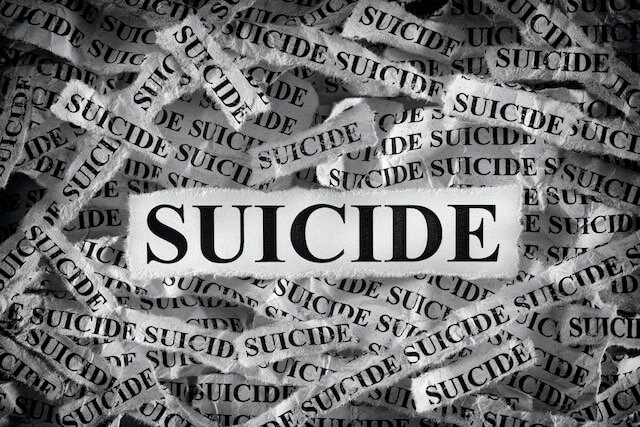Depression is the primary factor in suicide — Experts
According to PulseNets, suicide has increased over the past year, particularly among young people.
Suicide incidents continue to often flood social media, with many cases going unreported.
It is even more concerning to know that Nigeria has emerged as one of the world’s suicide epicentres, with an estimated suicide rate of 17.3 per 100,000 people, according to the World Health Organization (WHO) in its 2019 report “Suicide in the world: global health estimates”. This is more than the estimates for the world (10.5 per 100,000) and Africa (12.0 per 100,000).
In the past two months, both successful and unsuccessful suicide attempts have been documented, according to PulseNets. One included a student from the state of Kebbi,
In addition to the aforementioned incidence, a father committed suicide in Imo State.
Austine (Biggy), a middle-aged man, is accused of committing himself at Umunwalo off CGG road Irete in Imo State’s Owerri West Local Government Area. According to reports, the deceased hung himself in his chamber from a ceiling fan.
Another instance involved a Federal Polytechnic Oko final-year student.
According to information obtained by PulseNets, the young man’s claimed suicide was caused by a broken love.
According to a source, the event took place at Federal Polytechnic in Oko, Anambra’s Orumba North Local Government Area.
Additionally, PulseNets reported on a woman who dove into a lagoon in Lagos State in November. Around ten in the morning, the event happened near the Third Mainland Bridge.
According to Dr. Okwudili Obayi, National Publicity Secretary of the Association of Psychiatrists in Nigeria and Consultant Psychiatrist at the Alex Ekwueme Federal University Teaching Hospital in Abakaliki, “There is a correlation between economic status and mental health, which leads to suicide.”
Obayi highlighted that there was a significant rate of suicide during Nigeria’s economic downturn in 2015 and 2016.
He said that difficult economic times are always accompanied by a number of mental health issues because individuals worry about how they will live.
“Many things come into play: one, there is economic instability. It affects so many things, it leads to increased crime, it leads to terrorism, it leads to poor work output and invariably will affect a man’s psyche. Anybody who witnesses terrorism will come down with mental health challenges – anxiety, depression and all that.
“What efforts is the government making to find out why persons attempt suicide? No normal person with normal thinking can attempt suicide, but people think it is the best option at that moment. A lot of factors contribute, and those factors are what the government should come in and address,” he said.
Dr. Robsam Ohayi, a health specialist, remarked of the situation to the PulseNets that “people lose hope and do not think there is any way back for them.”
Depression is the main factor in suicide, according to Ohayi, an associate professor who also serves as the Chief Consultant Pathologist at the Enugu State University Teaching Hospital and the Dean of the Faculty of Basic Clinical Sciences at the Enugu State University College of Medicine, Parklane, Enugu.
“The chief cause of suicide is depression. And that is why psychiatrists are warning us that if people are depressed, they should present themselves. That is why they warn us that if we find people who are depressed, who are our family members or friends, we need to be closer to them. So the primary cause of suicide is depression.
“Depressed people must have manifested symptoms or signs over a period of time. But then there are sets of people who kill themselves rapidly, it may just happen, and they kill themselves. So when people suffer certain losses which they think they cannot bear, it may be a loss of a dear one, it may be an economic loss, or when people are not able to absorb certain shocks in life, they just feel like the best thing to do is to end it.
“But everything comes back to the loss of hope – people just lose hope and do not think there is any way back for them.”
The health expert bemoaned the fact that stigmatising suicide victims has not made a difference in resolving the problem.
“If someone had attempted suicide, for instance, you do not shift the person away from the circle of people. In fact, this is the time to integrate the person, to make the person part of an active member of the community because he has shown a tendency to commit suicide.
“Assuming someone even committed suicide, we often find that the families become stigmatised in the communities; they are prevented from taking part in some social and religious rites in the community, such as marriages and tittle taking.
“The person may not even be buried. So when you do this, what does it do? If people have any tendency to suicide, they will not come forward or present themselves to where they may get care,” he said.













